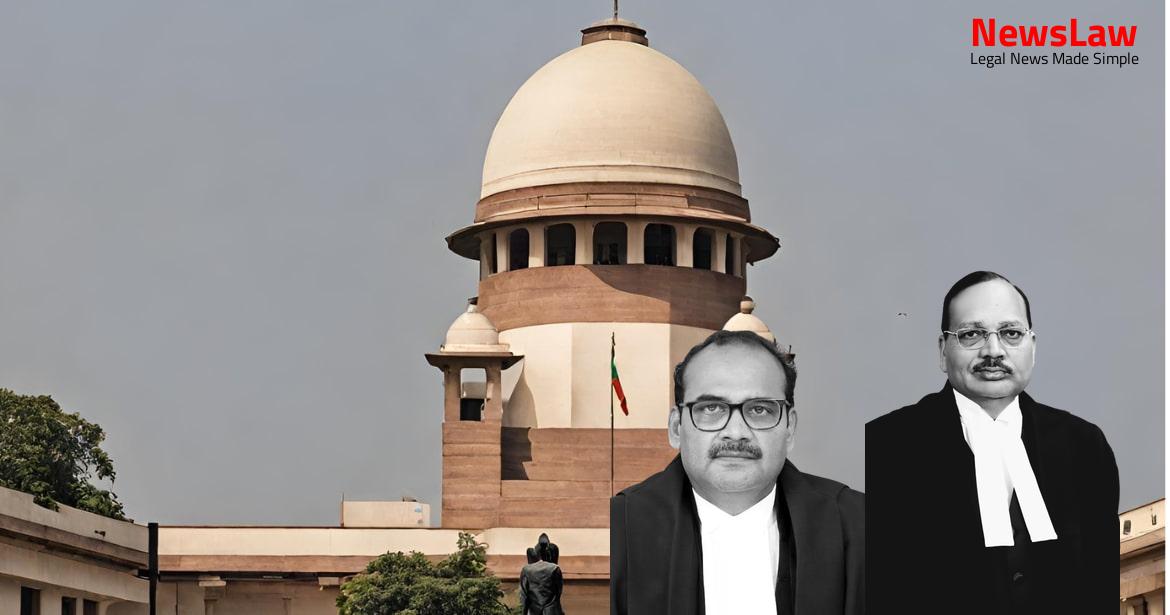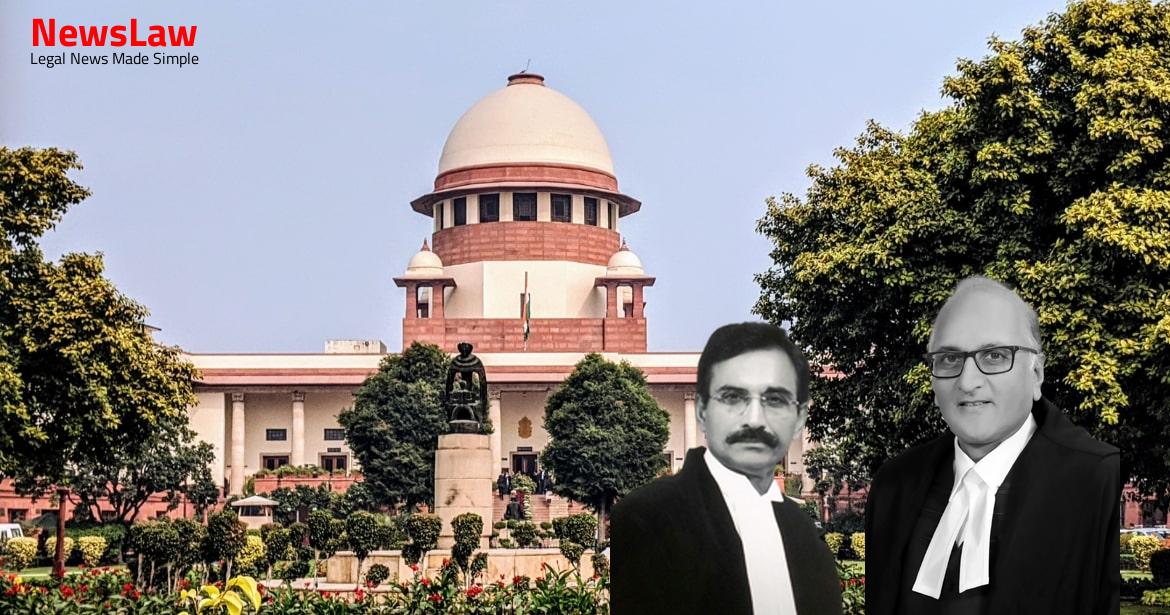Explore the intricate legal analysis done by the High Court regarding the existence of Permanent Establishment and the issuance of Tax Deduction Certificates in a recent case. The court’s thorough examination sheds light on crucial aspects of tax law and international trade agreements. #Legal #TaxLaw #HighCourt
Facts
- The Appellant adopted a basis for computing its assessable income and filed returns for Assessment Year 1999-2000 onwards.
- Returns for 2004-05, 2005-06, 2006-07 were processed under Section 143(1) of IT Act.
- AO passed Draft Assessment Order for 2007-08 stating Appellant had a Fixed Place Permanent Establishment in India and DAPE through ASL.
- Appellant’s contention about selling fabricated material to ONGC outside India was rejected by AO.
- Appellant applied for a tax deduction certificate under Section 197 of IT Act for activities done outside India in 2019-20.
- ITAT concurred with AO that there was a PE in India, but segregated income for activities outside India.
- High Court upheld ITAT’s decision on attributing income to PE in India and contract segregation for overseas activities.
- The Delhi High Court analyzed the contract of the Appellant with Respondent ONGC and determined that the project office did not constitute a Fixed Base Permanent Establishment under the Double Taxation Avoidance Agreement.
- Mr. Ganesh argued that the contracts relevant to the Assessment Year 2020-21 mirrored those considered in previous years of 2007-08, 2008-09, and 2009-10 in the Appellate Authority’s decision.
- The High Court issued notice to Revenue Authorities, and after a thorough hearing found no grounds for interference under Article 226 of the Indian Constitution due to lack of arbitrariness in the Respondents’ approach.
- The issue of splitting profits from the contract into India and overseas activities categories did not arise during the court’s evaluation.
- The High Court found the reasons in the note-sheet to be reasonable and did not warrant intervention.
- In a previous case, the High Court set aside a certificate requiring TDS deduction on payments made by ONGC to the Appellant after executing the R-series Contract.
- The judgment in the previous case was followed for the appeal of the Respondent for the Assessment Year 2009-10.
Also Read: Analysis of Financial Statements as Acknowledgment in Limitation Act Case
Arguments
- Mr. Ganesh argued on behalf of the Appellant, asserting that Respondent No.1 erred in law by not granting Nil rate TDS to the Appellant for the financial year 2019-20 under Section 197 of the IT Act.
- The Appellant, facing financial hardship, requested a concession of having the certificate at a tax rate of 4% plus surcharge and cess for the entire contractual revenues.
- Appellant contended that certificates of Nil TDS should have been issued for payments received for activities outside India, citing decisions by various Appellate Authorities and judgments of the Delhi High Court.
- In a departure from previous years, Respondent No.1 issued a certificate for the Financial Year 2019-2020 directing TDS at a rate of 4% on receipts for both activities outside and inside India.
- Mr. Ganesh highlighted that in previous assessments, the Appellant was found not taxable in India for similar contracts and that the ITAT consistently ruled in favor of the Appellant regarding taxability of income from activities outside India.
Also Read: Interpretation of Corporate Guarantor under IBC
Analysis
- The Appellant had PE in India in the final assessment for one or two preceding Assessment Years.
- The Appellant requested a Certificate under Section 197 of the IT Act for TDS at 4%, without prejudice to their legal position due to financial hardship.
- The impugned Certificate was issued as per the Appellant’s request, making it estopped from challenging it through Article 226 proceedings.
- The distinction between onshore and offshore activities is not clearly identifiable in the contracts in question.
- The determination of whether the Appellant had a PE in India during the Assessment Year is a disputed factual issue dependent on activities’ scope, nature, and duration in India.
- The High Court held that res judicata does not apply to income tax proceedings, as assessments are final only for the specific year.
- The installation PE will be determined if the project or activity continues for more than 9 months under the Indo-UAE DTAA.
- The High Court ruling on not interfering with the decision under Article 136 was upheld.
- The Assessing Authority assessed the Appellant in previous years as having a PE in India.
- The distinction between Ishikawajima-Harima Heavy Industries and Hyundai Heavy Industries cases related to assessment proceedings, not Section 197 certification.
- The questioning of a PE’s existence cannot be fully addressed during Section 197 proceedings within the permissible time frame.
- The Draft Assessment Order for the relevant year indicated that the Appellant had a PE in India, different from the purpose of Section 197 proceedings.
- The obligation to deduct TDS is limited to the appropriate proportion of income chargeable to tax under the IT Act.
- Res judicata principle not applicable to income tax proceedings as each year’s assessment is final only for that year
- Existence of Permanent Establishment (PE) to be determined separately for each year based on activities in that year
- Contracts like R-series and LEWPP series contracts to be considered for determining PE
- Non-resident entity to be taxed in India should carry on business through a PE in India
- Person not liable to deduct tax at source if sum paid to non-resident is not chargeable to tax under IT Act
- Question of PE could not be undertaken in an enquiry for issuance of Section 197 certificate given the time frame and completion of regular assessment in preceding year
- Assessing Authority found that the Appellant had a PE in India in the concerned Assessment Years, leading to possible pending appeal by the Appellant
- Observations made by the Court or the High Court will not influence the final assessment to be made in accordance with the law
- Final assessment must take into account all relevant facts and circumstances
- Any appeal should also be considered in the assessment
Also Read: Quashing of FIR and Charge-sheet: Legal Analysis
Decision
- The Appeal has been dismissed in this instance.
- In the event that the Appellant is proven to not be liable for tax, they will be able to claim a refund of TDS along with interest.
Case Title: NATIONAL PETROLEUM CONSTRUCTION COMPANY Vs. DEPUTY COMMISSIONER OF INCOME TAX CIRCLE 2(2) INTERNATIONAL TAXATION NEW DELHI (2022 INSC 772)
Case Number: C.A. No.-004964-004964 / 2022



